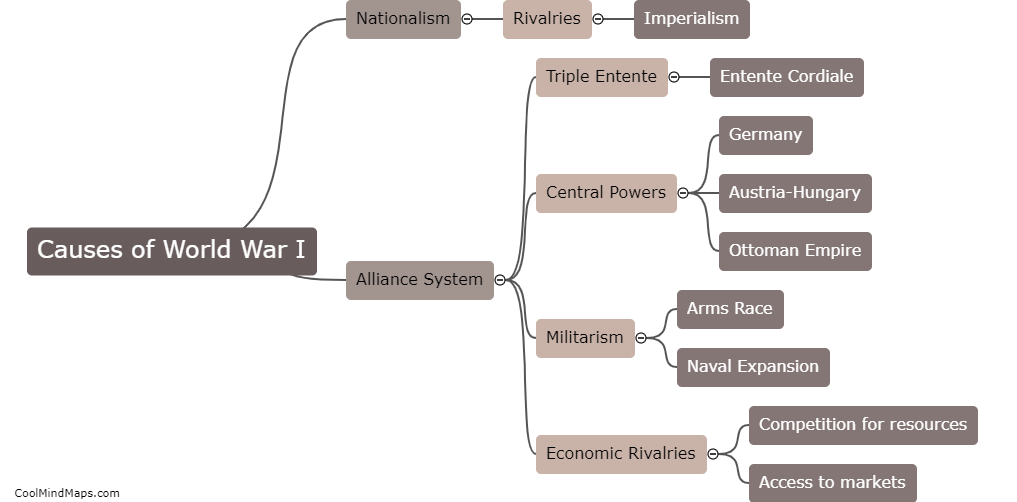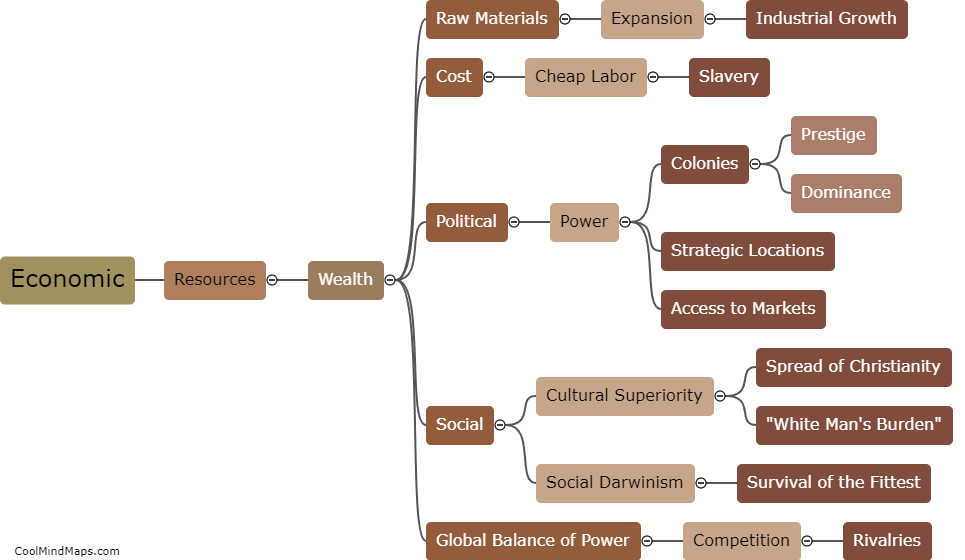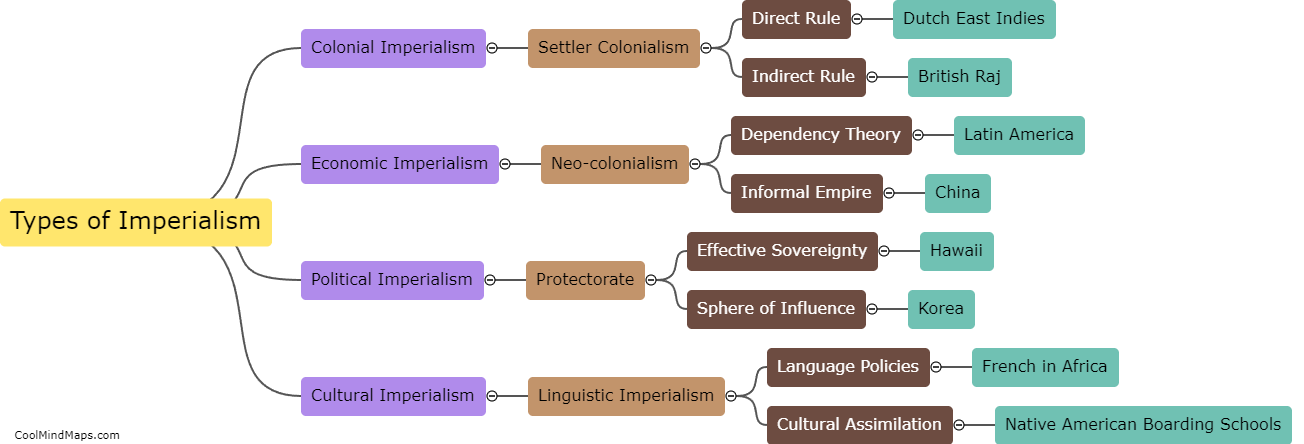What are the causes of imperialism?
Imperialism refers to the policy and practice of extending a country's power and influence through colonization, military conquest, or economic domination over other territories. There are several key causes behind imperialism, including economic motives, political factors, nationalistic aspirations, and a desire for strategic advantage. Firstly, economic motives played a significant role, as imperial powers sought to secure raw materials, new markets, and cheap labor to support their industries and boost their economies. Additionally, competition between countries to control resources and trading routes also drove imperialism. Secondly, political factors, such as geopolitics and the pursuit of international prestige, led nations to engage in imperialism. Countries sought to expand their territories to strengthen their position on the global stage and increase their political influence. Moreover, nationalistic aspirations also played a role, as countries embraced a sense of national pride and believed in their inherent superiority, leading them to seek dominance over other nations. Lastly, strategic advantage drove imperialism, with countries establishing colonies or military bases in strategic locations to secure control over vital trade routes or maintain military dominance. Overall, the causes of imperialism are multifaceted, combining economic, political, nationalistic, and strategic factors.

This mind map was published on 18 September 2023 and has been viewed 91 times.











